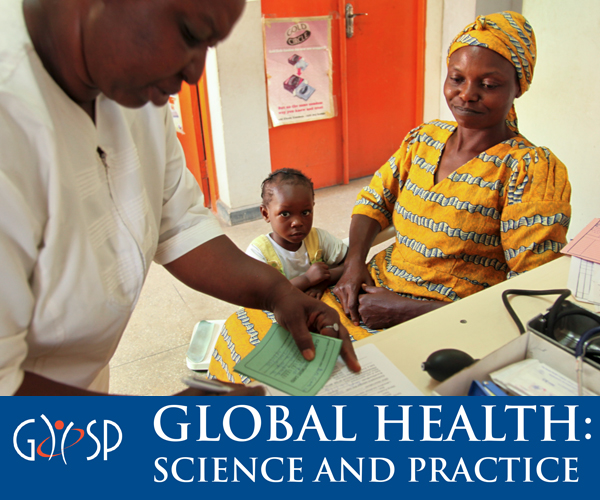This special issue of Global Health: Science and Practice, focused on long-acting reversible contraceptives (LARCs) based on papers presented at the 2016 International Conference on Family Planning, provides testimony to the remarkable rise in the popularity of implants and intrauterine devices (IUDs), as well as some limited evidence on permanent methods. The supplement’s articles, which provide insights specifically into the acceptability and provision of IUDs, include:
- Long-Acting Reversible Contraceptives: An Important Focus at the 2016 International Conference on Family Planning
- Rapid Contraceptive Uptake and Changing Method Mix With High Use of Long-Acting Reversible Contraceptives in Crisis-Affected Populations in Chad and the Democratic Republic of the Congo
- Applying a Total Market Lens: Increased IUD Service Delivery Through Complementary Public- and Private-Sector Interventions in 4 Countries
- Mentoring, Task Sharing, and Community Outreach Through the TutoratPlus Approach: Increasing Use of Long-Acting Reversible Contraceptives in Senegal
- The Tupange Project in Kenya: A Multifaceted Approach to Increasing Use of Long-Acting Reversible Contraceptives
- Strengthening Postabortion Family Planning Services in Ethiopia: Expanding Contraceptive Choice and Improving Access to Long-Acting Reversible Contraception
- Ugandan Women’s View of the IUD: Generally Favorable but Many Have Misperceptions About Health Risks
- Expanding Access to a New, More Affordable Levonorgestrel Intrauterine System in Kenya: Service Delivery Costs Compared With Other Contraceptive Methods and Perspectives of Key Opinion Leaders
- Vouchers in Fragile States: Reducing Barriers to Long-Acting Reversible Contraception in Yemen and Pakistan
- Increasing Uptake of Long-Acting Reversible Contraceptives in Cambodia Through a Voucher Program: Evidence From a Difference-in-Differences Analysis
- The Mayer Hashi Large-Scale Program to Increase Use of Long-Acting Reversible Contraceptives and Permanent Methods in Bangladesh: Explaining the Disappointing Results. An Outcome and Process Evaluation
- Increasing Use of Postpartum Family Planning and the Postpartum IUD: Early Experiences in West and Central Africa
Global Health: Science and Practice (GHSP) is a no-fee, open-access, peer-reviewed, online journal aimed to improve health practice, especially in low- and middle-income countries. Issued four times a year, GHSP includes articles on all global health topics, covering diverse programming models and a wide range of cross-cutting issues that impact and support health systems. The journal is co-published by USAID and the Knowledge for Health Project, which is based at the Johns Hopkins Center for Communication Programs.





